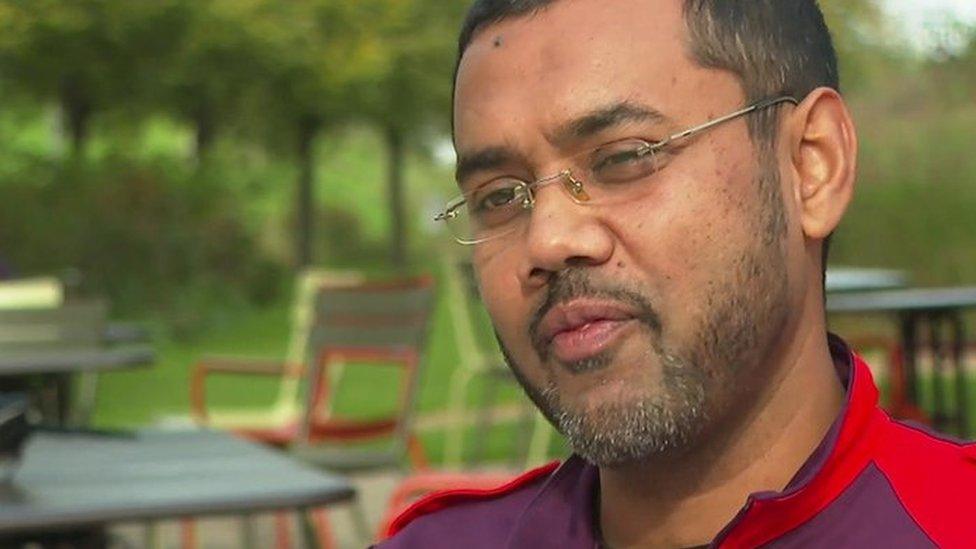Slavery survivor fulfils Olympic torch dream in Paris
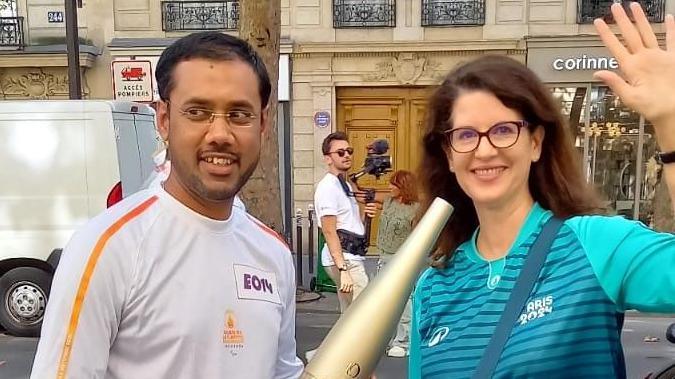
Mohammed Zaman, pictured with volunteer Lucille who he met in Paris, said it was a "big honour" to carry the torch
- Published
When Mohammed Zaman received a letter earlier this year informing him he had been nominated as a torchbearer for the Olympic Games in Paris, he hardly dared hope that he would ever get there.
He does not know who nominated him, but after years of volunteering at every major sporting event in London as well as at Queen Elizabeth II’s Platinum Jubilee it should perhaps come as little surprise that his name was put forward.
When Mohammed arrived in the UK in 2005 from Bangladesh he had a work visa and a job in a London curry restaurant.
But his employer was not what he seemed. Mohammed’s passport was taken away until his visa had expired, allowing his employer to exploit him with long hours and little pay and the threat of deportation.
He escaped and was eventually recognised as a victim of modern day slavery by the Home Office.
So began almost two decades of trying to regularise his immigration status.
Volunteering, and the friends he made doing so, became his lifeline.
'Big honour'
In recognition of his volunteering, he was invited to be a torchbearer at the Paris Olympics, and should have carried the Olympic flame in the city last month.
However, his Bangladeshi passport had long since expired and an emergency travel document from the Home Office could not be issued in time to allow him to go.
The Olympic authorities in Paris gave him a new date of 28 August, for the opening of the Paralympics.
He was granted Leave to Remain last month and picked up his French visa the day before we left for Paris.
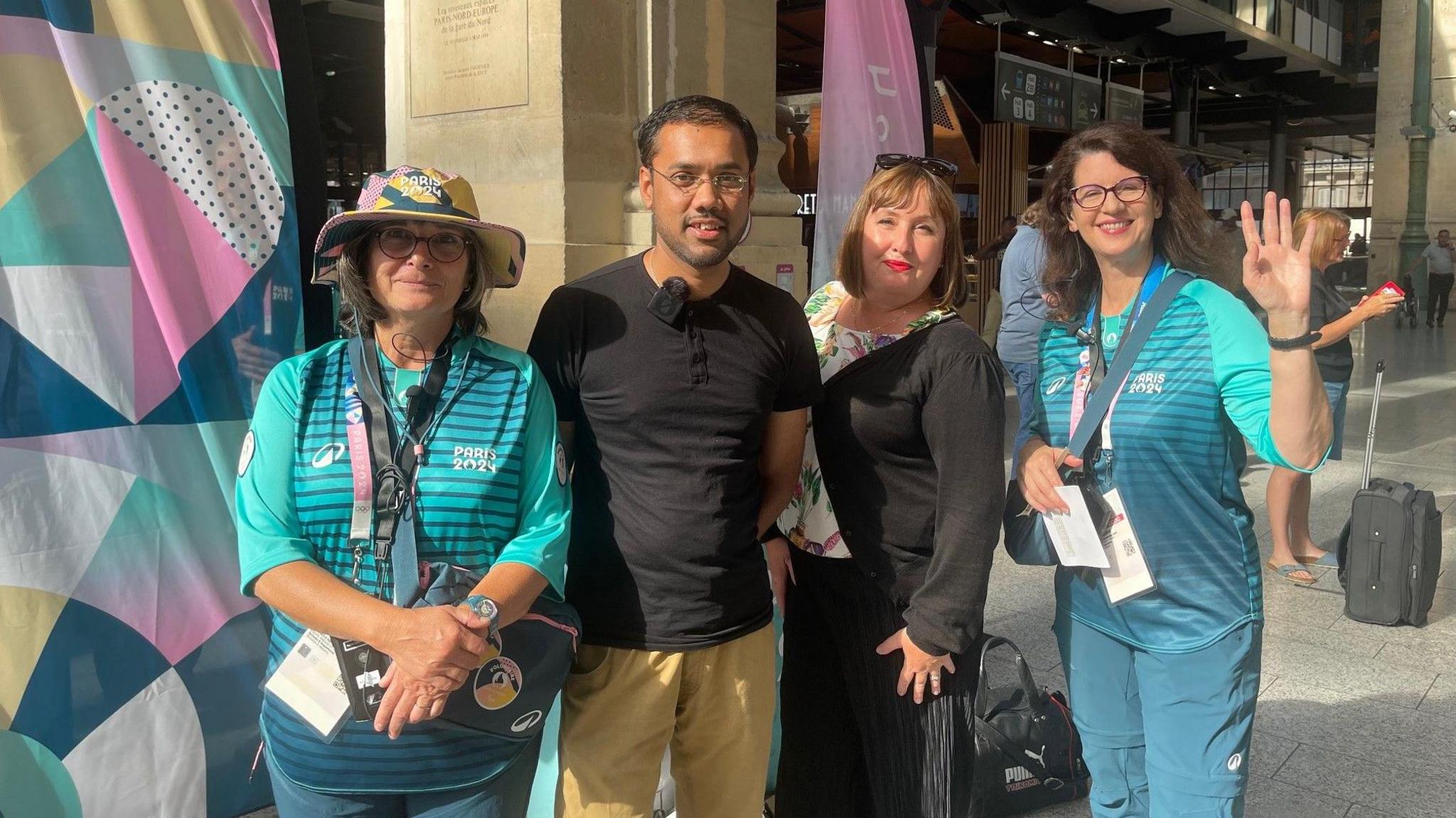
Mohammed shared his story with other volunteers when he arrived in Paris
Mohammed and I travelled out on the first train to Paris together on Wednesday.
“Usually August is the time of year that I feel most sad, because it reminds me of when I arrived in the UK and that my situation remained the same," he told me as we headed to the French capital.
"But not this year. Everything has changed dramatically. I have my Leave To Remain, I’m about to run with the Olympic torch in Paris, it’s a big honour."
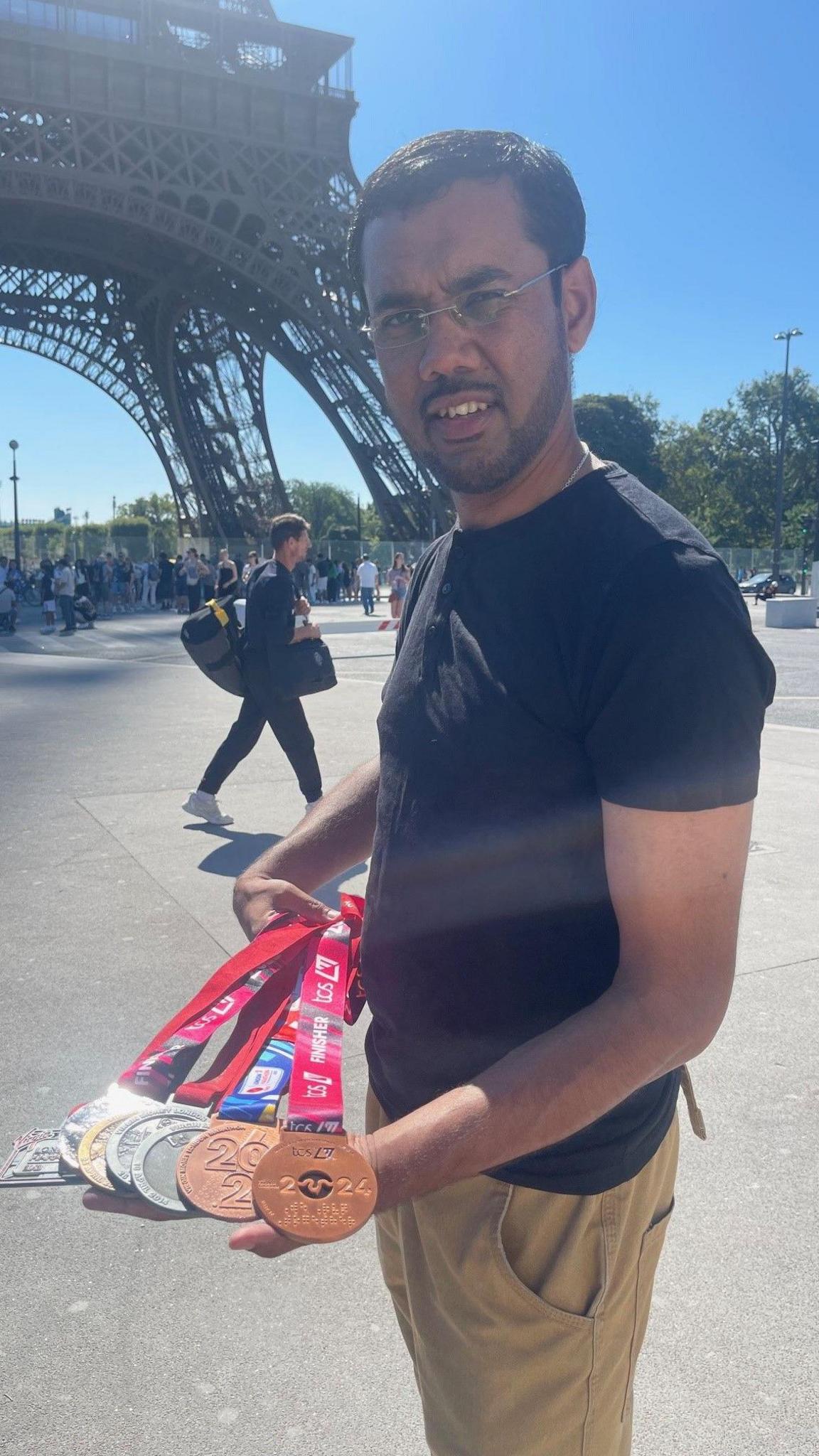
A group of gendarmes jokingly asked Mohammed if he was selling his London Marathon medals
When we arrived at the Gare Du Nord station, Mohammed immediately spotted a group of volunteers for the Paris 2024 Paralympic Games.
He told them his story and one volunteer, Lucille, was so moved she decided to come and watch him carry the torch when her shift finished.
"I wish I see you again with the flame," she told Mohammed.
"Because I think it's a great thing for you to carry it and I will be very happy to see you."
We then headed to the Eiffel Tower and were taking photos with Mohammed’s London Marathon medals when a group of gendarmes came to take a look and jokingly asked if he was selling them.
A Dutch couple looked up the BBC news articles on Mohammed’s story and asked if they could have a photo with him.
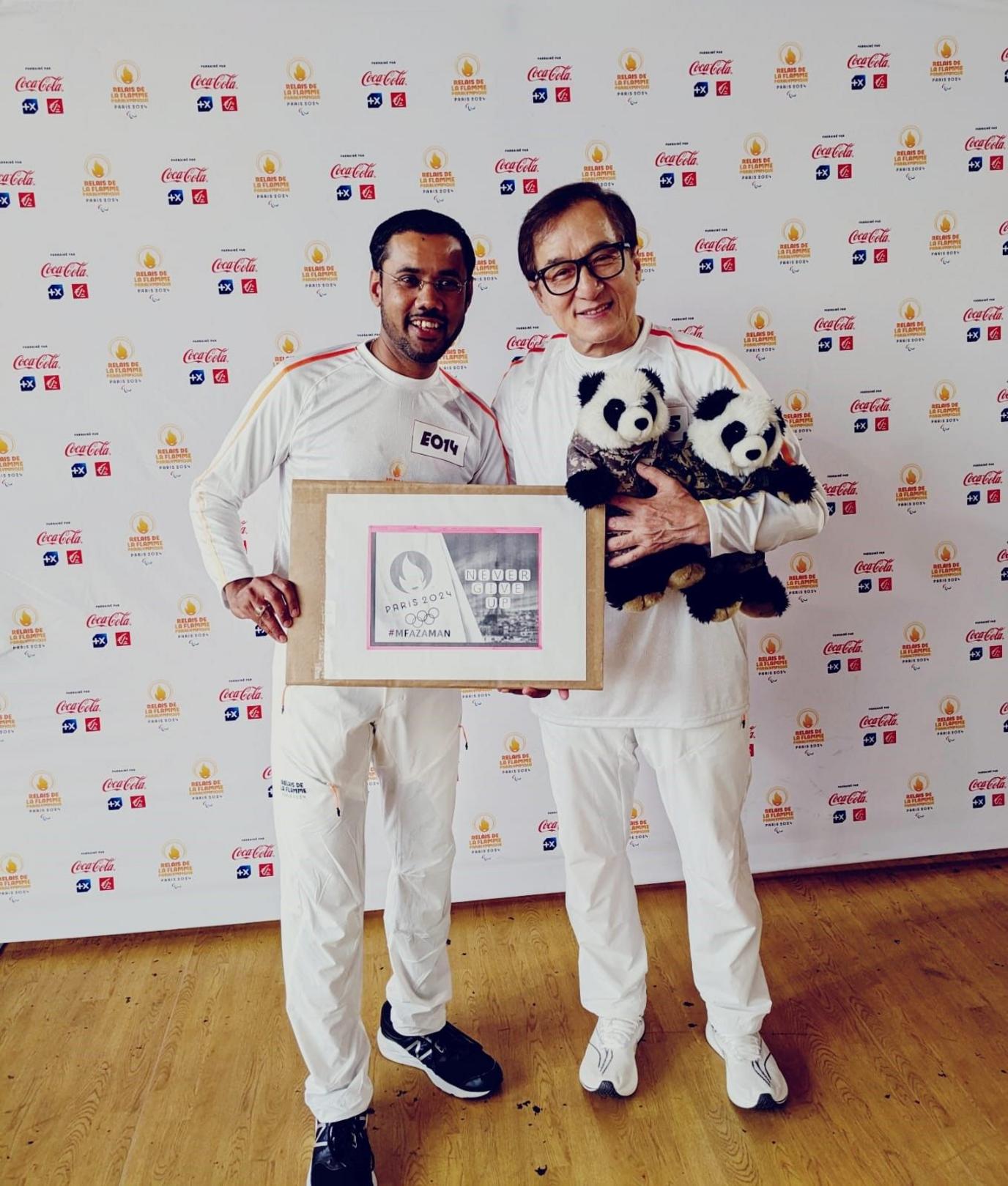
Hollywood actor Jackie Chan was among the other torchbearers Mohammed met
We set off for Gymnase Le Vau, a sports centre in the east of Paris, where I had to leave him with the other torchbearers, one of whom was the Hollywood actor Jackie Chan.
I made my way to an approximate location on the very long Boulevard Voltaire. Two onlookers were asking if I am a journalist when suddenly there was music and cheering and I saw Mohammed carrying the Olympic torch.
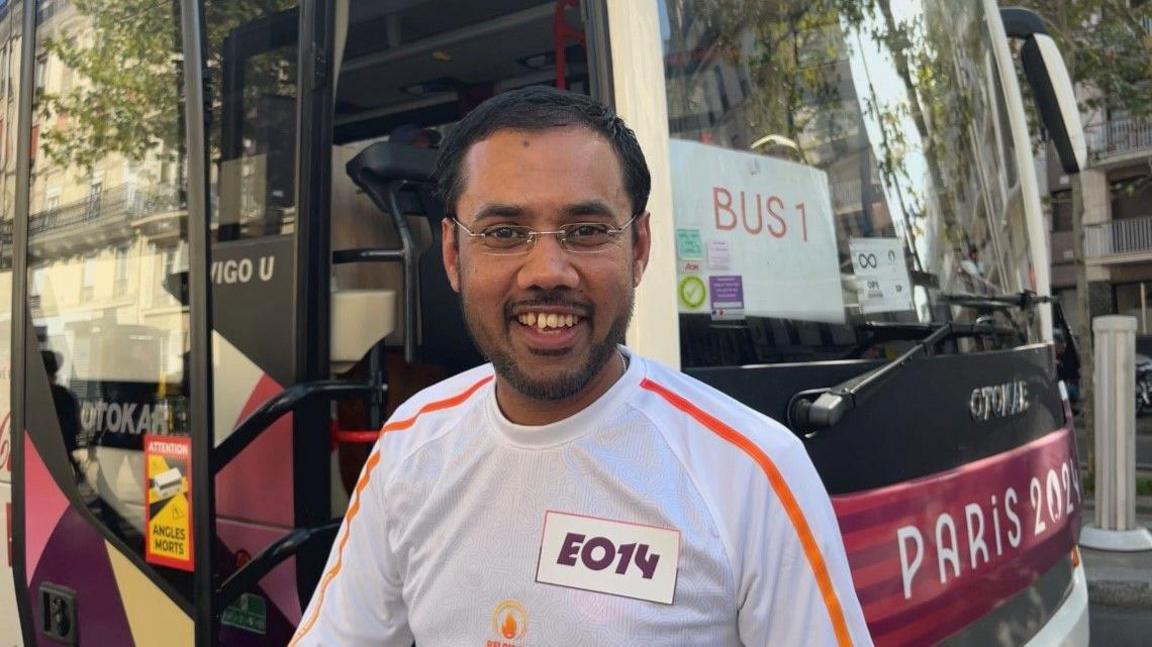
After Mohammed's journey he returned to the torchbearers' bus, calling “see you in London!” as the doors closed
On the other side of the road I spotted Lucille, the volunteer from earlier who had come to cheer him on, as she promised she would.
And just like that, it was over.
Mohammed was whisked away on the torchbearers' bus, calling “see you in London!” as the doors closed, and I could see he was beaming from ear to ear.
And it was almost time for me to get the 20:12 train back from Paris to London. How appropriate.
Listen to the best of BBC Radio London on Sounds and follow BBC London on Facebook, external, X, external and Instagram, external. Send your story ideas to hello.bbclondon@bbc.co.uk, external
- Published25 July 2024
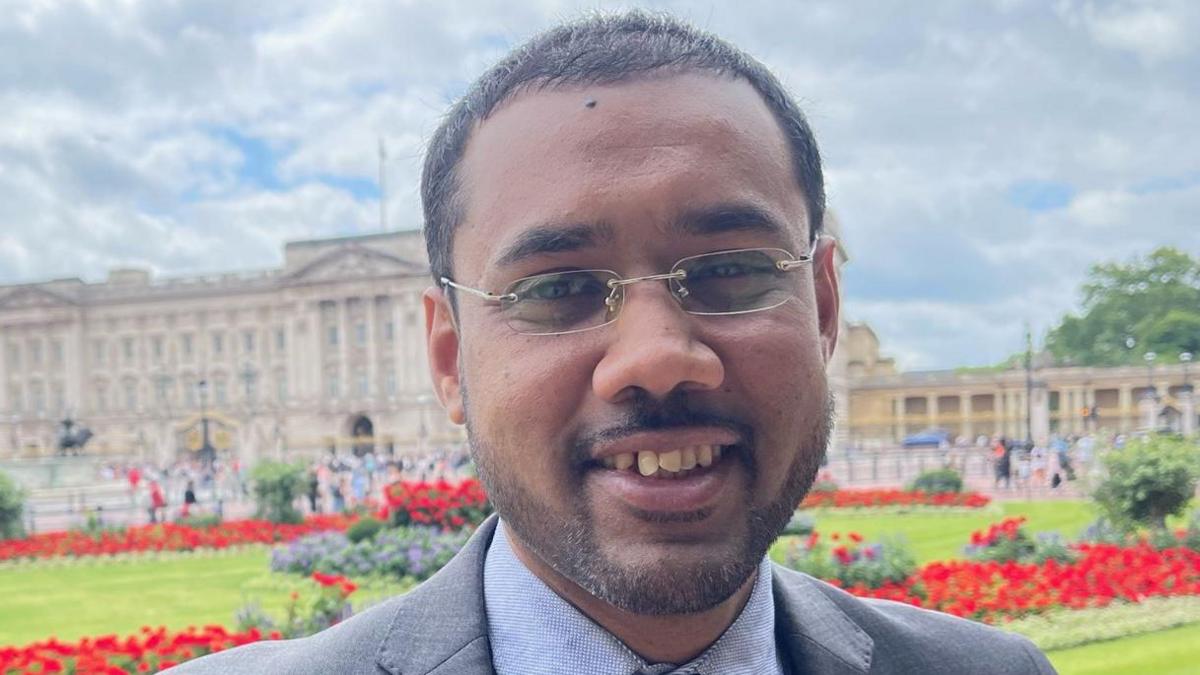
- Published25 October 2023
